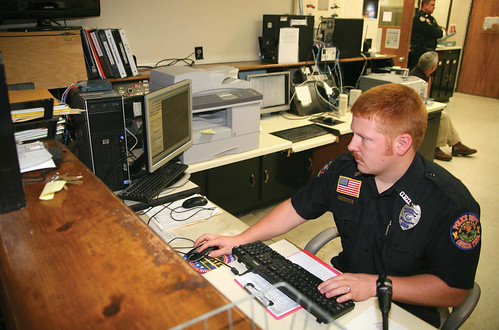
Near Stearns, Kentucky, a state trooper monitored traffic, watching for a car described in a just-issued bulletin. A car passed. No match.
Stearns is situated on the Upper Cumberland Plateau, McCreary County which is home to just 18,000 people.
Another car flashed by.
This time trooper revved his engine in pursuit. Joined by nearby deputies, the state patrol chased the vehicle to a stop, detained four suspects on several violations, and confiscated a load of pseudoephedrine.
Five years ago, this car would have slipped under the radar. Like their urban counterparts, isolated places like McCreary County are finding that the Internet provides the tools they need to protect their communities.
Highland Telephone Cooperative, a 60-year old company from Sunbright, Tennessee, used Recovery Act funding to build a 2,700-mile network of fiber that delivers state-of-the art broadband over 21,000 households, 700 businesses, and countless public institutions.
Broadband service allows police officers to pull license plate numbers, addresses, and criminal records instantly. Intelligence analysts now have the capacity to mark patterns in suspicious behavior, or, in this case, the habitual purchase of methamphetamine ingredients.
Broadband allows emergency responders to streamline their processes and digitize their data. Broadband means that rather than submitting monthly stacks of paper to Nashville, police and emergency responders now send records electronically, providing critical information instantaneously to help keep rural communities safe.
With sharp minds in the line of duty, resourceful companies like HTC, and progressive funding from the USDA Rural Development, our Cumberland first responders just got a lot swifter and savvier in keeping communities safe.
